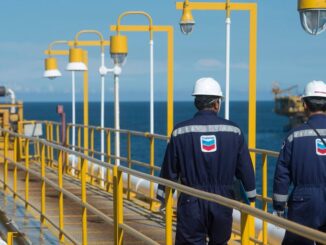
Chevron revealed this week that it has prepared for the six-month Gulf of Mexico hurricane season through design, workplace safety training and by maintaining its own fleet of 18 helicopters for flying to and from its production platforms.
The company, which highlighted that it is among the top operators in the Gulf of Mexico, noted that having its own fleet of helicopters, as well as a detailed game plan, minimizes the potential for production disruptions when crew evacuation becomes necessary.
“Other companies that depend on contracted helicopters to evacuate can’t create their own schedule and might have to start departing the platform days in advance,” Jose Jaramillo, the manager of Chevron’s aircraft operations in the Gulf of Mexico, said in a company statement.
“With our own helicopters on standby, we have more flexibility in determining when to safely shut down the platform, and after the storm passes, we can quickly remobilize, assess our facilities and bring production back online days faster,” Jaramillo added in the statement.
“We try to do everything as efficiently as possible … We have a vested interest in keeping our employees safe and making sure we do things the right way,” Jaramillo continued.
Chevron outlines on its website that its platforms are designed to withstand “once in a thousand year storms” and highlights that they have weathered numerous hurricanes in previous years.
Back in May this year, the National Oceanic and Atmospheric Administration (NOAA) revealed that forecasters at its Climate Prediction Center, a division of the National Weather Service, were predicting above average hurricane activity in 2022. If this turns out to be true, it would make it the seventh consecutive above average hurricane season, according to NOAA, which is forecasting up to six major hurricanes with a 70 percent confidence.
At the time of writing, the National Hurricane Center does not expect tropical cyclone activity in the Atlantic during the next 48 hours.
Source: Rigzone.com



